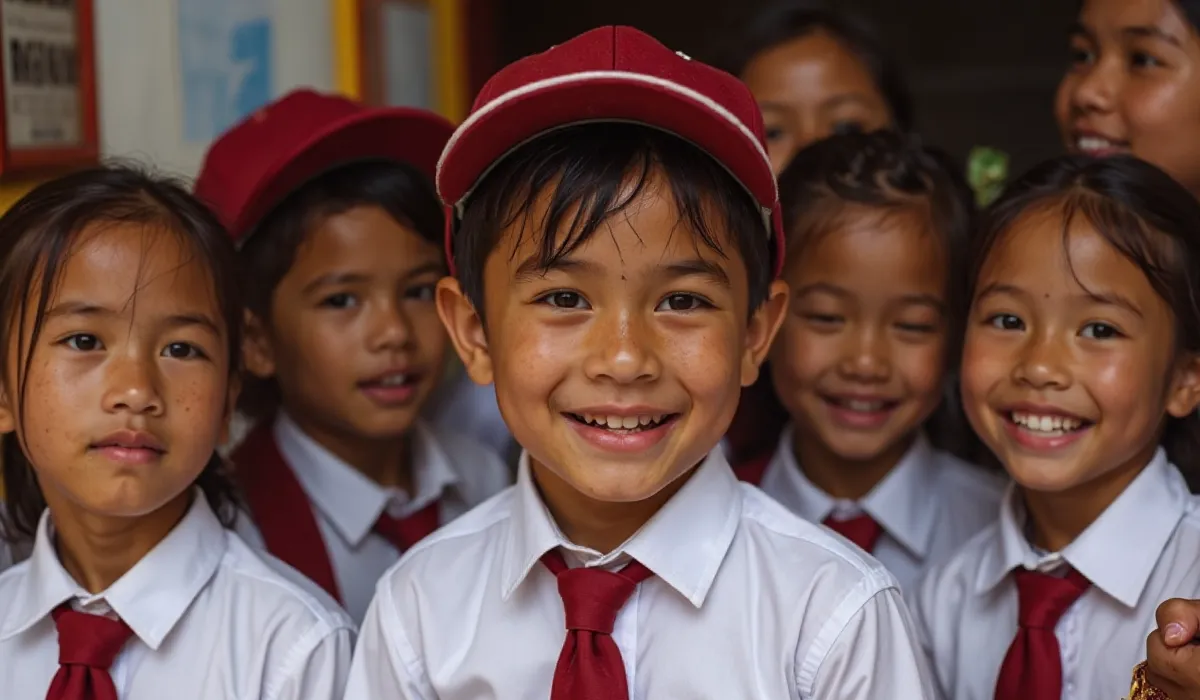A new policy mandating earlier school start times in West Java has ignited a fierce debate among educators, child development experts, and parents, with many warning that the 6:30 a.m. start could harm students’ mental and physical health by disrupting critical sleep patterns. Announced by Governor Dedi Mulyadi on May 28, 2025, the circular targets students from kindergarten to senior high school, aiming to instill discipline as part of broader initiatives to curb youth delinquency. However, critics argue that the measure lacks scientific grounding and could undermine the very goals it seeks to achieve.
Details of the New Policy
The policy, set to take effect in mid-July with the start of the new academic year, requires students across all educational levels in West Java to begin their school day at 6:30 a.m. Initially proposed as a 6:00 a.m. start, the time was adjusted by 30 minutes following early feedback. According to the circular, the change aligns with the Education and Culture Ministry Regulation No. 23/2017 on school days and aims to optimize morning learning hours based on students’ developmental stages. School durations will vary by level, with preschools operating for a minimum of 195 minutes daily and high schools for at least 10 hours.
Governor Mulyadi has framed the early start as a compensatory measure for an additional weekly day off on Saturdays, mandated by government regulations. It also ties into his broader character-building initiative, termed “Pancawulya,” which draws on Sundanese cultural values such as kindness, health, righteousness, intelligence, and skillfulness. Alongside this, other measures like night curfews and military-style boot camps for “misbehaving students” have been introduced to address issues like street brawls, gang activity, and online gaming addiction. Yet, these punitive approaches, particularly the boot camps, have drawn sharp criticism for their potential psychological impact on young minds.
Concerns Over Sleep Deprivation and Brain Health
Educators and health experts have raised significant concerns about the policy’s impact on students’ well-being, particularly citing sleep deprivation as a primary risk. Satriwan Salim, national coordinator of the Association for Education and Teachers (P2G), has argued that a 6:30 a.m. start is impractical for many students in West Java, where infrastructure and accessibility lag behind urban centers like Jakarta. “Many students live over 10 kilometers from their schools, making such early hours a logistical nightmare” he said. He also noted a contradiction with the night curfew policy, which aims to promote healthier nighttime routines, suggesting that early starts could instead lead to fatigue, anxiety, and diminished academic performance.
Neuroscience communicator Trisa Triandesa has further emphasized the biological challenges, especially for adolescents. Sharing insights via social media last week, he explained that teenagers aged 13 to 18 undergo a natural shift in circadian rhythms during puberty, making it difficult for them to fall asleep before 11 p.m. “Forcing them to wake up early for school risks chronic sleep deprivation, which can impair brain health” he warned. Trisa added that if the goal is to build discipline, it should not come at the expense of students’ cognitive development, pointing to studies showing that later school starts improve mood, mental health, and academic outcomes.
Questioning the Policy’s Urgency and Basis
Beyond health concerns, critics have questioned the urgency and evidence behind the early start policy. Education consultant Ina Liem described it as a “populist” move lacking a data-driven foundation. “The real issues in education today revolve around budget efficiency, school governance, and teaching quality, not start times” she told a local outlet on June 6, 2025. While supportive of the night curfew for encouraging parental involvement, Ina argued that the early start fails to foster genuine discipline and risks becoming more about image-building than substantive reform.
International research supports these critiques. A 2015 study from Singapore, published by the Sleep Research Society, found that delaying elementary school start times by just 45 minutes significantly improved students’ alertness and well-being, even in a competitive academic environment. Similarly, a 2017 study in England, published in Frontiers in Human Neuroscience, showed that shifting high school start times to 10 a.m. reduced absences by 50 percent and boosted academic performance by 12 percent. Countries like Finland and South Korea, known for high-performing education systems, have also adopted later start times—9 a.m. in many cases—to prioritize student health and family interaction, according to reports from Finnish public broadcaster Yle and The Korea Times.
Broader Implications for West Java’s Youth
The debate over school start times in West Java reflects a larger tension between traditional approaches to discipline and modern understandings of child development. Governor Mulyadi’s initiatives, including night curfews and boot camps, suggest a belief that strict schedules and punitive measures can address social issues like delinquency. However, child development experts caution that such methods may backfire, causing stress and alienation rather than fostering the values of the Pancawulya framework. The boot camp proposal, in particular, has been flagged as potentially harmful, with experts warning of long-term psychological effects on students subjected to militaristic environments.
Logistical challenges add another layer of complexity. West Java, with its diverse geography and uneven infrastructure, poses unique barriers to implementing a uniform start time. Students in rural areas, who often rely on limited public transport or long commutes, may be disproportionately affected, exacerbating existing inequalities in access to education. Satriwan Salim’s observation about the disparity between Jakarta and West Java underscores the need for policies tailored to local realities rather than one-size-fits-all mandates.
Public and Political Reactions
Public sentiment, as gauged through social media platforms like X, reveals a mix of frustration and concern among parents and students. Many question why the focus is on start times rather than improving classroom resources or teacher training. Others worry about the practicalities of getting young children ready for a 6:30 a.m. start, especially in households where parents work early shifts. Meanwhile, some local officials have expressed cautious support for the governor’s intent to instill discipline but have called for pilot programs or phased rollouts to assess the policy’s impact before full implementation.
Politically, the policy has placed Governor Mulyadi under scrutiny, with opponents accusing him of prioritizing visible reforms over substantive change. Education advocates argue that West Java’s leadership should consult neuroscientists, educators, and community stakeholders to craft policies that balance discipline with well-being. The controversy also raises questions about how regional governments interpret national education regulations, potentially setting a precedent for other provinces in Indonesia to adopt similar measures—or resist them based on local needs.
Looking Ahead
As West Java prepares for the mid-July rollout of the early school start policy, the debate is far from settled. With mounting evidence linking sleep to academic success and mental health, pressure is growing on Governor Mulyadi to reconsider the 6:30 a.m. mandate or at least allow flexibility for schools based on their location and student demographics. For now, parents, teachers, and experts alike are left grappling with the implications of a policy that aims to shape the province’s youth but risks undermining their future potential. How this tension resolves may well influence broader education reforms across Indonesia, where the balance between tradition and science remains a critical challenge.
















